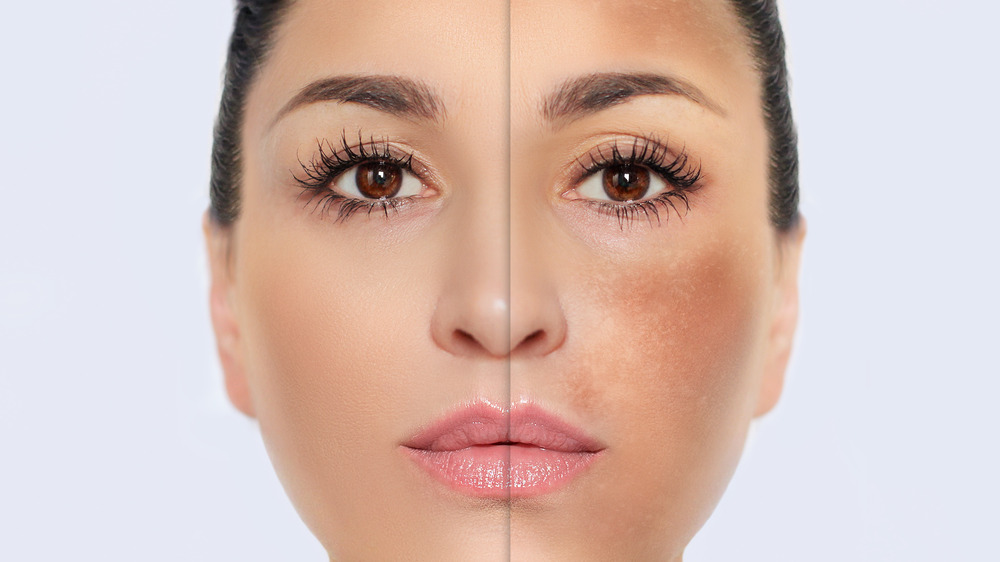Here's What Really Causes Hyperpigmentation
If your dermatologist has just taken a look at your skin and diagnosed you with hyperpigmentation, don't be worried. We know, it may sound like a dire health condition. But the truth is, hyperpigmentation is a medical term for harmless dark patches of skin found on the body and face. And according to Anita Sturnham, GP, dermatologist and founder of Nuriss Skincare & Wellness Clinics, it "is a common condition that can affect all skin types and all ages" (via Byrdie).
Hyperpigmentation is the result of the skin creating more melanin. This is the pigment that gives skin its color (via Medical News Today). But why would the skin suddenly start to create more melanin? Sturnham explains there could be a variety of reasons. "Anything that causes inflammation in the skin can potentially send a signal to our melanocytes, the cells that produce brown melanin pigment as part of an immune response," she shares. "This inflammation can be caused by UV damage, acne spots, and outbreaks, harsh chemicals on the skin and even hormonal fluctuations, such as those in pregnancy or when taking the contraceptive pill."
As common as it is, you likely still want to know why you suddenly woke up to a dark patch or smattering of patches on your skin. A smart first step would be to identify what type of hyperpigmentation you have.
What type of hyperpigmentation do you have?
There are three types, which are categorized as melasma, post-inflammatory hyperpigmentation, and sunspots (via Healthline). If you have melasma, then you can likely blame your dark patches on hormonal changes. This can be due to pregnancy, birth control pills, or hormone therapy (via Healthline).
Post-inflammatory hyperpigmentation often occurs after the skin has experienced an injury or inflammation of some kind. This can be from acne, a cut, burns, or lupus. Sunspots are a bit more self-explanatory. If your hyperpigmentation is categorized as a sunspot, then it likely occurred because of overexposure to the sun over a period of time (via Medical News Today).
No matter what type of hyperpigmentation you have, you can keep it from getting worse by staying out of the sun and not irritating the dark patches by picking at them (via Medical News Today). And if you want to get rid of the unwelcome new spots on your skin, it may be possible. Sturnham says that, "Using a combination of at-home and in-clinic based procedures, we can generally achieve adequate reduction and even complete resolution in many patients" (via Byrdie). We get that hyperpigmentation may be super-annoying to deal with. But luckily, it's not a threat to your overall health, and there are easy ways to prevent it from getting worse.

